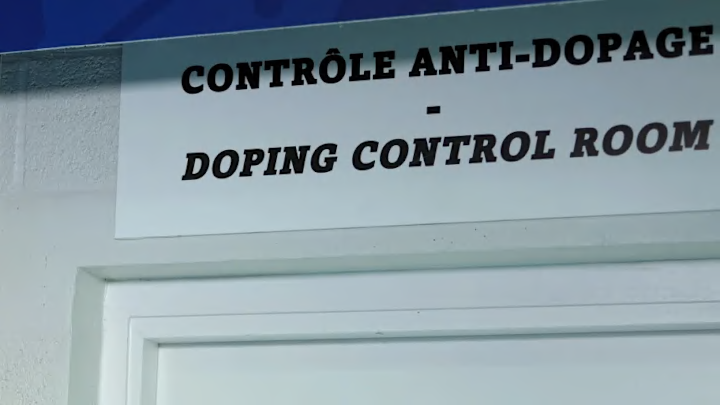An unnamed footballer served a one-year ban from action during 2019 after testing positive for a banned substance.
Players are subject to random drug tests during the year, and the urine sample collected from this player on 31 January 2019 was found to contain several prohibited substances.
BAN ⚽ | A football player has been suspended from all sport for a period of one-year following an Anti-Doping Rule Violation (ADRV).
— UK Anti-Doping (@ukantidoping) March 20, 2020
See UKAD's statement 👉 https://t.co/GFmS0Hh60l pic.twitter.com/rGJYNLhnr1
As noted by UK Anti-Doping, the player, who was registered with the Bury, was hit with a one-year ban which eventually expired in January 2020, six months after the club were kicked out of the Football League after falling into a financial crisis.
However, when you look into the details of the whole thing, it's a wild story.

So, what happened was that this mystery Bury player was taking medication to treat an underlying heart condition, and he spoke to his club doctor to try and arrange an application for a Therapeutic Use Exemption (TUE), which would have prevented him from getting banned.
Unfortunately for the player, that club doctor just so happened to be Dr Andrew Johnson, who was charged with breaching anti-doping rules in relation to his failures to apply for TUEs.
⚪️🔵 Everyone at #buryfc are overwhelmed with the support shown for us up and down the country, from the Premier League all the way down the pyramid, thank you to all the #footballfamily #thislovewilllastforever 💙 pic.twitter.com/CZefmvZ6KI
— Bury Football Club (@buryfcofficial) August 31, 2019
Johnson, who worked with both Bury and Manchester City, is said to have assured this player that he had successfully applied for a TUE, but the doctor had not done so and later claimed to have simply forgotten about the whole thing. Not what you want from a doctor.
He filed for a TUE months after the initial doping violation, but dated the application back to December 2018 to try and pretend that the form had been lost by UK Anti-Doping. Obviously, that didn't work, and it was never going to work.
Johnson was caught out because his submission was made using the 2019 version of the form, which obviously didn't exist in December 2018. Busteeeeed.
BAN ⚽ | Football doctor, Dr Andrew Johnson, has been suspended from all sport for a period of four years following an Anti-Doping Rule Violation (ADRV) - Tampering or Attempted Tampering with any part of Doping Control.
— UK Anti-Doping (@ukantidoping) March 13, 2020
Full judgement 👉 https://t.co/EShMw0jb8e pic.twitter.com/xq9hfUVRM1
"This is a very unusual case but one that demonstrates how important it is for athletes to take all steps to be personally responsible for their TUE applications," Ukad chief executive Nicole Sapstead said.
"It highlights that an athlete is still ultimately responsible for what they have in their system, even when support staff are involved in their medication or treatment."
